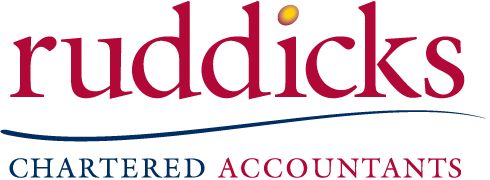Second Tasmanian Stimulus Package - Community
Sport and Recreational Clubs
- $2 million for a grants program to support the ongoing viability and operation of sporting clubs and associations.
- $500,000 for grants of up to $10,000 to commercial trading RSL sub-branches and ex-serving organisations impacted by COVID-19.
Community Support Fund
- The Government will be providing an additional $5 million to enable community sector organisations to support vulnerable people in our communities, including an additional $1 million for emergency accommodation, on top of the $1 million already announced in the first Stimulus Package.
- $800,000 for emergency food relief to assist in the production of ready-to-eat nutritious meals and also increasing delivery frequency across the State, including increased support for the elderly and most vulnerable.
- $350,000 to TasCOSS to ensure a joined-up and connected community sector response, including helping ensure frontline community sector staff can keep services open or adapt their business model to continue to deliver services for the most vulnerable as well as an Essential Technology Fund to enable community sector organisations to access technology to continue to deliver vital support services to vulnerable Tasmanians by phone or online, and work from home.
- $130,000 to Volunteering Tasmania to activate EV-CREW – the State’s emergency network of registered volunteers. This funding will help support community sector organisations who rely heavily on volunteers, to assist them in supporting Tasmanians in self-isolation with food, medications and psychosocial support.
- $200,000 to support the Youth Network of Tasmania, the Council of the Ageing and Tasmanian Men’s Sheds to help support young and senior Tasmanians, and men, respectively, through communications, phone assistance and helping to keep these vulnerable groups connected and safe, including from elder abuse.
- $260,000 for Community Transport Services Tasmania to maintain essential State-wide regional transport for the most vulnerable, including the frail aged, helping to support an additional 250 new consumers per week, through transport for shopping and medical appointments, or alternatively, delivery of food, medicines and social support. CTST would also recruit 10 additional full-time equivalent positions for this work.
- $700,000 for all Neighbourhood Houses ($20,000 one-off for each of the 35 Houses) to continue to provide support in their own communities, assisting those in most need.
- An additional $1 million to increase the provisions of the No Interest Loan Scheme, to enable the NILS network to significantly increase the provision of loans to those in need, to avoid turning to payday or fringe lenders for those in financial distress.
Family Violence
- Increasing funding by an additional $2.7 million, including $1.9 million to increase the capacity of the Safe at Home family violence integrated criminal justice system, with more funding for the Family Violence Counselling and Support Service, the Safe at Home Coordination Unit, court support and liaison services, legal practitioner support services, and specialist family violence police prosecution services. Funding will also be provided to increase the Rapid Rehousing Pool by 20 additional properties for a 12 month period and to provide specialist family violence and sexual assault support services to increase operational capacity.
- An additional $2.5 million to enhance child safety and wellbeing, including funding for the Child and Young Person in Care Fund to ensure children and young people have internet access and mobile technology for communication and home learning. $1.2 million will be provided for an enhanced After Hours Response Service to deliver additional after hours support to children and families at risk. Support will also be provided to establish an informal kinship carer liaison and support function, providing grandparents and other informal kinship carers with access to necessary advice and support when they require it.
Social Housing
- The Government will not increase rent for social housing tenants over the next six months, and will not take Federal or State Government emergency assistance payments into account when calculating income for this period.
- Up to 75 homes will be added to the Private Rental Incentive Scheme for two years. The Scheme offers landlords an incentive to lease their homes for a two-year period at a rental that is set at an affordable level for clients from the Social Housing Register.
State Sector
- Employees who are not unwell but are required to self-isolate or to not attend work do not have to apply for, or access, any form of leave for the isolation period, and are to be paid their normal salary including regular allowances for the duration of the absence.
- Working from home arrangements will be encouraged and implemented in these circumstances where possible.
- Provision for employees to access special leave when their personal leave entitlements have been exhausted and who are unable to access flexible working arrangements, such as working from home.
- Casual State Service workers will be provided with access to two weeks paid special leave should they be directed to self-isolate.
DISCLAIMER:
Liability limited by a scheme approved under Professional Standards Legislation.
The content of this newsletter is general in nature. It does not constitute specific advice and readers are encouraged to consult their Ruddicks adviser on any matters of interest. Ruddicks accepts no liability for errors or omissions, or for any loss or damage suffered as a result of any person acting without such advice. This information is current as at 26 March 2020, and was published around that time. Ruddicks particularly accepts no obligation or responsibility for updating this publication for events, including changes to the law, the Australian Taxation Office’s interpretation of the law, or Government announcements arising after that time.
Any advice provided is not ‘financial product advice’ as defined by the Corporations Act. Ruddicks is not licensed to provide financial product advice and taxation is only one of the matters that you need to consider when making a decision on a financial product. You should consider seeking advice from an Australian Financial Services licensee before making any decisions in relation to a financial product. © Ruddicks 2020

